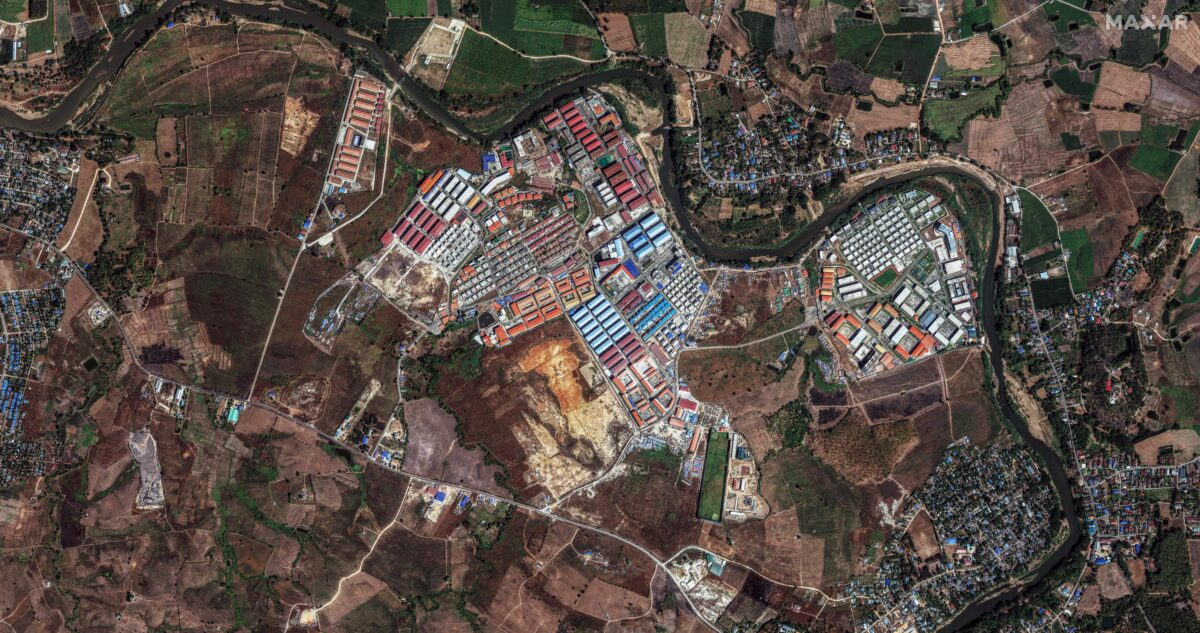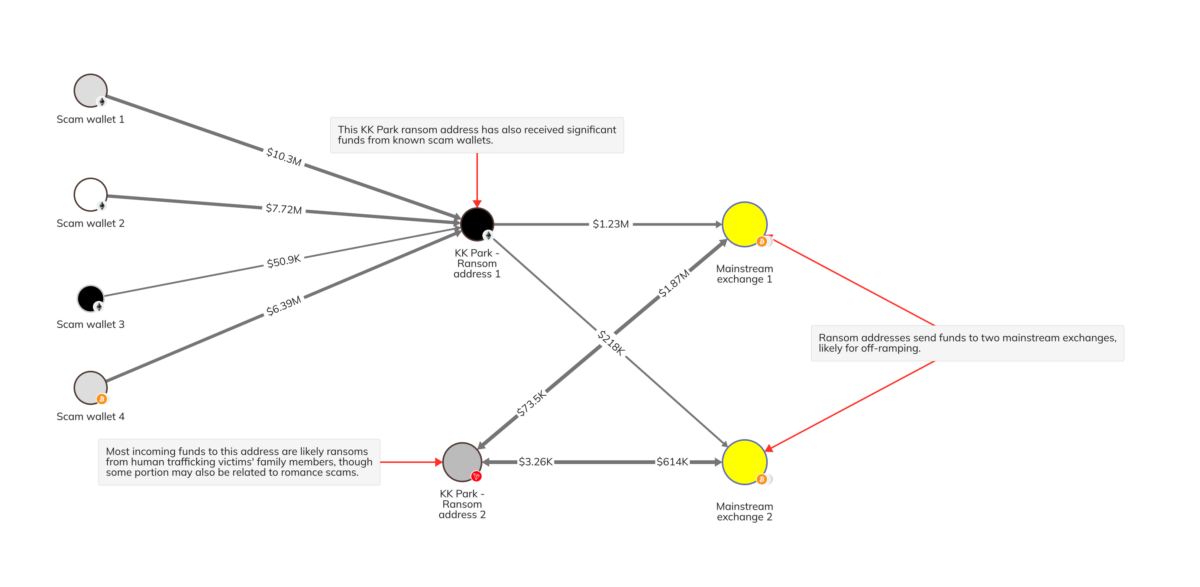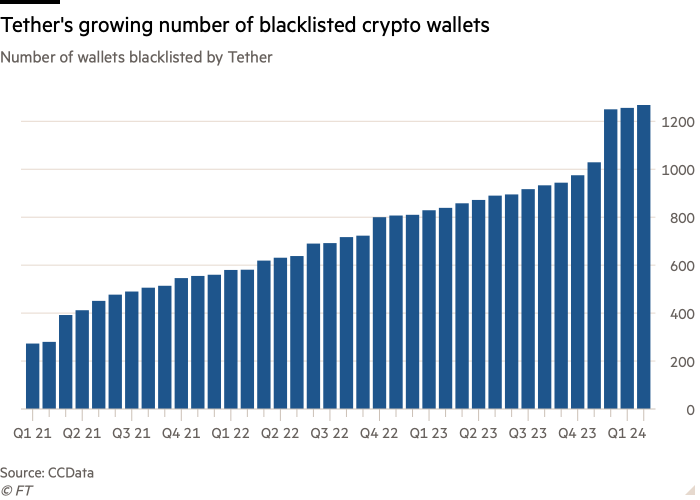On-chain tracking of Myanmar scam parks: nearly $100 million in cryptocurrency received at just two addresses
Author: Chainalysis & FT
Compiled by: Felix, PANews
The romance scam, also known as "pig butchering," involves scammers "fattening up" victims to extract the maximum possible value. This is a problem closely related to cryptocurrency and is becoming increasingly severe. Scammers first establish a relationship with the victim (usually a romantic one), often by pretending to dial the wrong number or connecting through dating apps. As the relationship deepens, the scammer eventually lures the victim to invest money (in cryptocurrency or fiat) in a fake investment opportunity and continues to entice them to invest until they eventually cut off contact.

Source: CoinDesk
The FBI noted in its 2022 IC3 report that in 2022, Americans lost over $700 million due to "pig butchering" (including cryptocurrency and fiat), with losses from all types of cryptocurrency investment scams approaching $2.5 billion. These figures do not include victims from other countries, such as China, where residents are also primary targets of these scams.
As many people become aware of the devastation "pig butchering" causes to victims, they also gradually recognize that the scammers themselves are being exploited. As discussed in a 2022 conversation with journalist Alastair McCready on the Chainalysis Public Key podcast, and as recently reported by The New York Times, there are individuals kidnapped and trafficked across China and Southeast Asia who are forced to work in labor camps within large parks to carry out "pig butchering" scams. Places like Myawaddy in Myanmar are hotspots for these scams, as the political instability there allows scam gangs to operate with impunity.
KK Park: Myanmar's Most Notorious "Slaughterhouse"
Chainalysis interviewed Eric Heintz, an analyst from the International Justice Mission (IJM). Locally, Eric Heintz and his team assist IJM's office in helping trafficked victims. As part of this work, they also track criminal gangs, monitor their recruitment activities on social media, map their gathering places using satellite imagery, and communicate with trafficked victims.
"The living conditions for these people are horrific. They are forced to work 12 hours or more each day, and if they fail to meet scam quotas, they are beaten, tortured, or even denied food."
Eric Heintz also revealed more information about the scam teams. Typically, one company owns the land and buildings and then rents them to other companies that carry out the actual "pig butchering." Heintz stated that the owners of these parks often provide "security" for their tenants, meaning they send guards to prevent trafficked victims from escaping.
How do these scam gangs use cryptocurrency? While it is known that they collect cryptocurrency from victims, Eric Heintz also revealed that the scam gangs often require the families of trafficked victims to pay ransoms for their freedom. These payments are usually made in cryptocurrency as well. The ransom addresses provided by Eric Heintz to Chainalysis are linked to the families of trafficked victims. One of these addresses is associated with a pig butchering gang operating in one of Southeast Asia's most notorious parks, KK Park. Eric Heintz stated, "Some scams may mix the proceeds from scams with ransoms paid by victims' families." In fact, aside from activities potentially related to ransom payments, the addresses provided by Eric Heintz also have on-chain connections to scam activities.

Satellite image of KK Park
Nearly $100 Million in Cryptocurrency Received from Just Two Addresses
First, before delving into on-chain analysis, let's understand the background of KK Park. KK Park is currently one of the largest and most notorious "pig butchering" hubs. Located in the aforementioned Myawaddy town in Myanmar, it is reported to house over 2,000 trafficked "scammers." Heintz provided Chainalysis with two ransom addresses, which he claims are linked to a front company for a pig butchering gang operating in KK Park. The following Chainalysis Reactor diagram shows some on-chain activity related to these addresses.

Just from the two ransom addresses provided by Heintz, we can see on-chain activity worth millions of dollars. First, although these addresses were provided as ransom payments to the victims' families, they also received substantial funds from several known scam addresses.
For example, ransom address 1 received approximately $24.2 million in cryptocurrency from four scam-related wallets on its left. Both ransom addresses have sent and received large amounts of funds to and from mainstream exchanges, with some transactions likely being ransoms. Overall, since becoming active in July 2022, these two addresses have received nearly $100 million in cryptocurrency, although it is currently unclear how much of that is from scams and how much is from ransoms. Considering that these are just two addresses from one company operating in KK Park, it can be inferred that the scam teams in this park have made a significant amount of money.
On-chain analysis shows that the extortion activities of the scam gangs are closely intertwined with their primary business ("pig butchering"). The brutal living conditions faced by trafficked victims in the park also make the issue increasingly urgent, as victims are defrauded out of hundreds of millions of dollars each year, and the gangs behind these scams violate humanitarian principles.
The good news is that the cryptocurrency ecosystem is taking action. In November, the stablecoin issuer Tether and the cryptocurrency exchange OKX announced that they were collaborating with the U.S. Department of Justice on an investigation, with Tether freezing approximately $225 million worth of USDT tokens. These tokens are linked to an international human trafficking group responsible for "pig butchering" in Southeast Asia. According to data provider CCData, Tether has blacklisted nearly 1,300 cryptocurrency wallets, a figure that has surged since the company opened its platform to U.S. authorities, including the FBI, last November.

Additionally, in an operation led by South Korea's Interpol at the end of 2023, authorities arrested 3,500 criminals related to online scams and seized $300 million in funds, of which $100 million was in crypto assets. Chainalysis encourages all cryptocurrency businesses to investigate activities related to scams and report them to law enforcement.
It is worth mentioning that, according to the Financial Times, most of the tracked cryptocurrency worth about $100 million was transacted on the Tron blockchain, which has low transaction fees and has developed into one of the largest networks in the industry.









